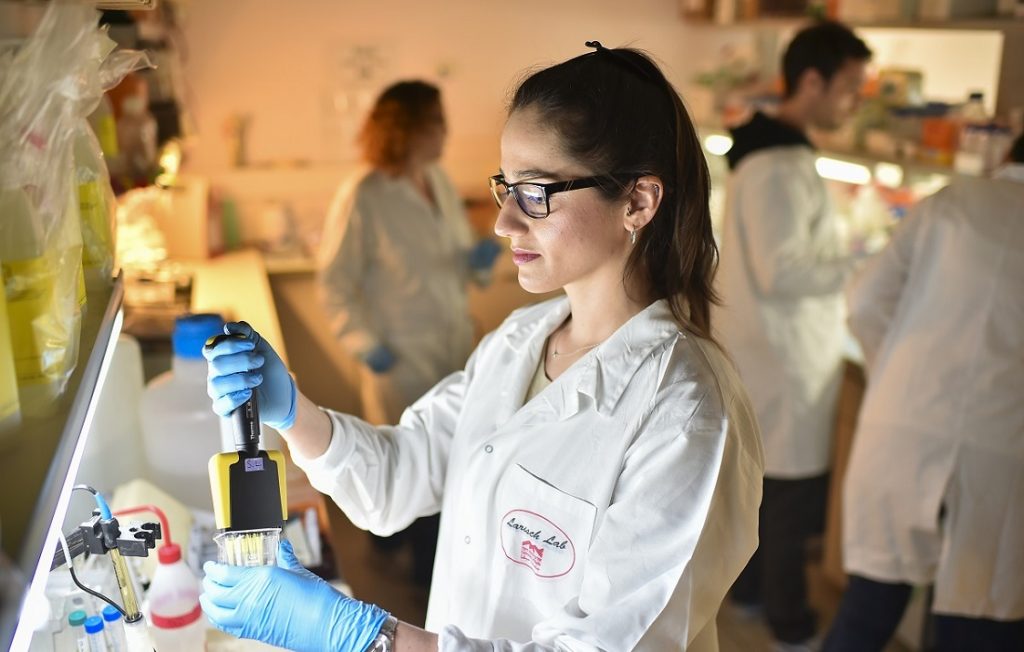Cancer Research

Treating breast cancer patients, diagnosed at a very early stage of the disease, remains a major clinical challenge. Great efforts have been devoted to develop strategies for preventing overtreatment of patients at this critical stage. Researchers at the University of Haifa are using the innovative ARTS-based therapy approach to “normalize” premalignant breast cells and prevent cancer progression and overtreatment in early-stage patients.
Project Contact
The Project
All cells in our body have the ability to self-destruct by activating an intrinsic cell suicide program called “Apoptosis”. In this way, the accumulation of damaged and potentially dangerous cells, such as tumor cells, is greatly limited. Unfortunately, cancer cells can acquire resistance towards cell death by inactivating cell suicide pathways, thereby gaining the ability for “unlimited” life and propagation.
Researchers at the Cell Death and Cancer Research Laboratory are focused on investigating Apoptosis and how to harness the process to kill cancer cells. They have identified and characterized ARTS, a protein which regulates the levels of several important anti-apoptotic proteins.
Prof. Sarit Larisch and Dr. Dalit Barkan are now developing small molecule ARTS mimetics designed to suppress tumor progression and selectively induce apoptosis in breast cancer cells.
ARTS research also has important potential implications for the treatment of neurodegenerative conditions such as Parkinson’s disease and Alzheimer’s disease in which cell suicide mechanisms are overactive.
Photo Credit: Nitzan Zohar
